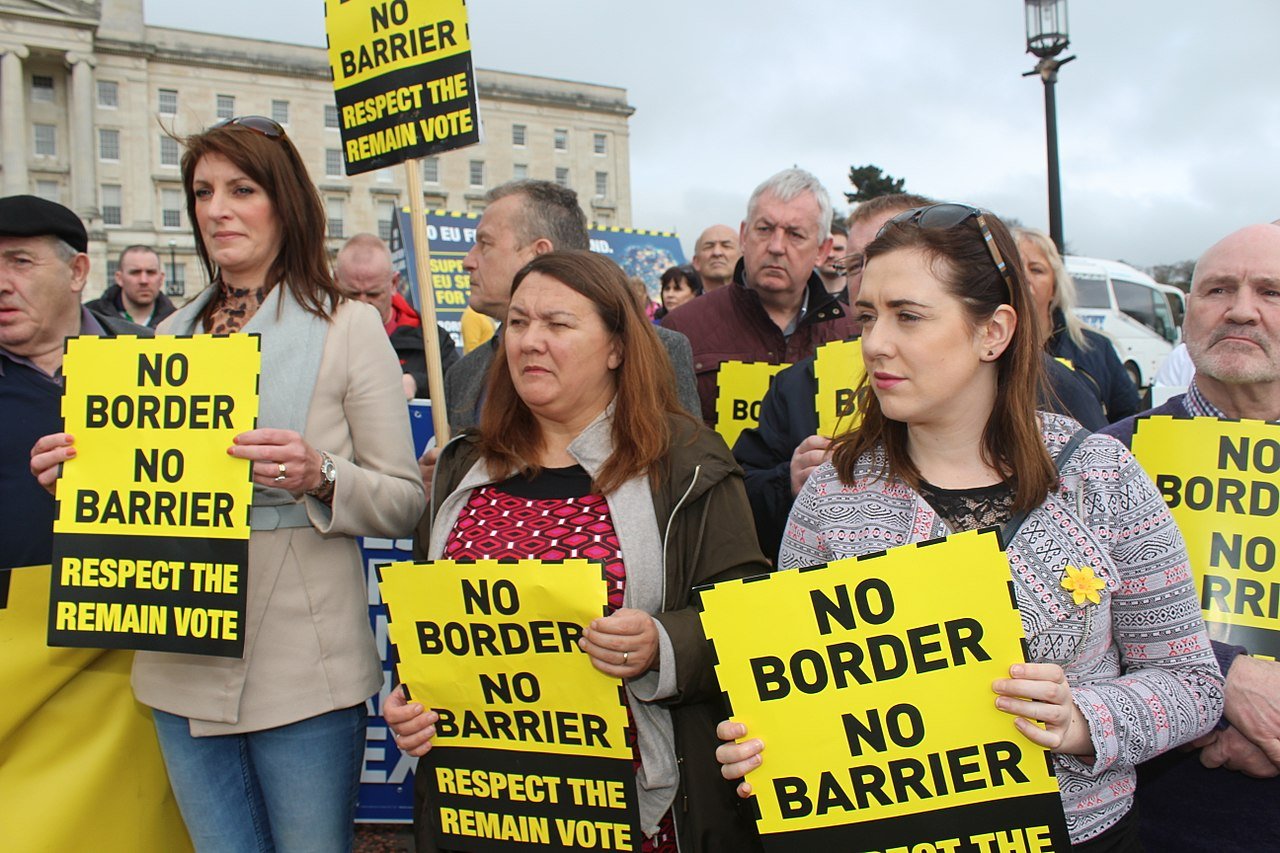The United Kingdom joining the likes of Norway in the European Free Trade Association represents the best post-Brexit outcome for the UK.
In the most likely event that the United Kingdom’s Prime Minister Theresa May’s deal is rejected by Parliament, the absence of an alternative answer risks the calamity of crashing out of the EU without a deal. The raising of customs checks, the fleeing of firms, the potential shortages of food and medicine, ripping up lives and livelihoods is a nightmare that would be unforgivable if allowed to happen. I explain why joining the European Free Trade Association and remaining in the European Economic Area (the so-called ‘Norway option’) is the only way that we can put an amicable ending to a 40-year marriage, honour the democratic decision of the British people and unite the United Kingdom.
A Second Referendum?
While a ‘no-deal’ would destroy our economy, a second referendum would destroy our democracy. Trying to subvert the will of over seventeen million Brits would do irreparable damage to any trust the public has in politics, parallelling the Iraq war. The beneficiaries of what would be perceived as the ‘biggest betrayal in British history’ would be a respawned UKIP – so rancid and racist that even Farage has resigned. For Remainers, a second referendum is strategically stupid. There is no guarantee Remain would win. Two votes to Leave would be a firm mandate for a hard Brexit. 52:48 is a mandate for Brexit, but the narrow margin creates a case for compromise and concessions.
The Solution
Remainers rightly say that people did not vote for EasyJet to relocate to Vienna, for Nestle to shift its production to Poland or for the City to risk its passport rights, resulting in Deutsche Bank, Standard Chartered, JP Morgan and Goldman Sachs to plan to move thousands of jobs to Frankfurt, Dublin and Paris. Leavers respond that accountability and sovereignty shouldn’t be sacrificed at the altar of GDP. However, this is a false trade-off. By remaining inside the single market but leaving the EU, we would recover the confidence of investors, companies and households while delivering the letter of Leave. This is a relationship enjoyed by Norway, Liechtenstein and Iceland as part of the European Free Trade Association (EFTA). The exclusively economic arrangement is estimated to cost £1.5bn per annum, compared to the £9.4bn paid currently to the EU.
“By remaining inside the single market but leaving the EU, we would recover the confidence of investors, companies and households while delivering the letter of Leave”
A Sacrifice of Sovereignty?
Opponents call this the ultimate sacrifice of sovereignty, downgrading our status from ‘rule-maker’ to ‘rule-taker.’ However, single market rules only account for 28% of total EU laws. Norway does not participate in the common agricultural or common fisheries policies, the customs union, common foreign and security policy, home affairs, or monetary union. Furthermore, under Article 99 of the EEA Agreement, EFTA members have the right to be consulted on new single market legislation via the ‘decision-making process.’ Norway has some 200 diplomats and experts based in Brussels, participating in the development and drafting of new rules and directives.
Unlike EU states, EFTA states have substantial “adaptation” rights when it comes to implementing EU single market legislation domestically. Norway has changed 40% of services directives. Failing this, Article 102 guarantees the right of veto. Indeed, Norway has ignored various energy and maritime directives. As well as allowing us to remain a ‘rule maker,’ sometimes we could even be a ‘rule breaker.’ We would be outside the jurisdiction of the European Court of Justice. Yes, we would need to join the EFTA Court alongside Norway, Iceland and Liechtenstein. This court is autonomous, and while there is harmonisation, there have been eleven cases where the EFTA Court has deviated from the ECJ. A voice as one of four would surely be more pronounced than one of twenty-eight.
The UK would recover control over her trade policy, enabling the Department for International Trade to sign additional trade deals around the world. Iceland has its own trade deal with China. We would be free to join the 27 deals EFTA states have jointly negotiated with 43 other countries. The freedom and the flexibility of EFTA would enable us to maintain the security of the single market while exercising sovereignty as a free-trading nation. Unlike the EU’s governing principle in the Lisbon Treaty which promotes the “ever closer union of the peoples of Europe,” the EEA Agreement stipulates the commercial objective of promoting a “continuous and balanced strengthening of trade and economic relations.” Still not convinced? Article 127 allows members to leave within one year, restoring optionality to our relationship with Europe. The right to democratically disengage is the ultimate manifestation of sovereignty.
Uncontrolled Immigration?
The Leave vote was not simply a vote against immigration. According to the Lord Ashcroft poll conducted on the day of the referendum result, the biggest reason for wanting to leave the EU was “the principle that decisions about the UK should be taken in the UK.” Nevertheless, of course immigration played a part. The beauty of a Norway-style Brexit is that it would not disrupt the dreams of Brits who desire to work, study or retire across the continent while allowing us to control our borders.
The free movement of labour chapter specifies only “workers,” the “self-employed” and “their dependents” can come to an EEA country, providing scope to limit jobless migrants to become burdensome ‘welfare tourists.’ Article 28 allows for an ‘emergency brake’ on free movement “subject to limitations justified on the grounds of public policy, public security or public health.” It is in accordance with this stipulation that Lichtenstein has limited immigration to 2.25% of the current population since 1997. During a recession, this would enable the policy of ‘British jobs for British workers’ to be a reality.
Practicality
An EFTA-style agreement may be desirable but would it be possible? The EEA states seem eager to welcome the UK. The Norwegian PM, Erna Solberg, told the FT: “I think we will cope very well if the Brits come in. It will give bargaining power on our side too. And it would ease Norway’s access to the UK.” Icelandic Foreign Minister, Gudlaugur Thór Thórdarson, said the UK should “definitely join EFTA.” In 2016, Switzerland declared that they were “basically positive.” Thorfinnur Omarsson, a spokesperson for the EFTA bloc, confirmed “We are open to receiving a UK membership application” in 2017.
What about the EU? It has already been proposed by Michel Barnier, the bloc’s chief negotiator! Moreover, the UK is already a Contracting Party to the EEA Agreement in its own right, having signed up in 1992. Since the Agreement is a multilateral international treaty, its membership is protected under international law. Forced expulsion of the UK could not be achieved with ease. Many Brexiteers tarnish the Norway option as Remain in all but name. Ironically, many of the myths were spread by supporters of the EU such as David Cameron. Pre-2016, being ‘like Norway’ was a standard Eurosceptic position, evidenced by how it was previously the position of the Bruges Group, a Eurosceptic Conservative Party think-tank. In 2015 Aaron Banks, the billionaire who bankrolled Brexit, tweeted: “Increasingly the Norway option looks the best for the UK.”
Support for this deal could unite sections of the right and the left. In Statecraft, Margaret Thatcher wrote: “The EFTA model is perhaps not ideal: but it is certainly an acceptable option.” For the left, this provides a vision of Brexit that facilitates Scandinavian social democracy. Among the Conservatives, almost half of the cabinet have held talks to weigh up the possibility of backing a soft Brexit if Parliament rejects May’s deal. The strategy is a God-send for a Labour Party that is currently devoid of direction and needs to maintain the Midlands, metropolitan cities and the North to win an election. In June, 75 Labour MPs voted to remain in the EEA. Both the DUP and SNP are making Norwegian noises.
Conclusion
In these divided times, a unity Brexit is the need of the hour. The brilliance of this Brexit is it would fulfil the ambitions of Leavers and Remainers alike. For the fishermen, we would have control over our waters. For the bankers, the City retains its financial passport rights. For the bohemian students, free movement remains. For those with concerns, free movement is reformed with an emergency brake. Only a Norway-style Brexit can unite the North and the South, England, Wales and Scotland and allow a smooth-running and unobtrusive border in Ireland. Only by embracing EFTA can we truly unite the United Kingdom and work to make Great Britain great again.






Article Discussion